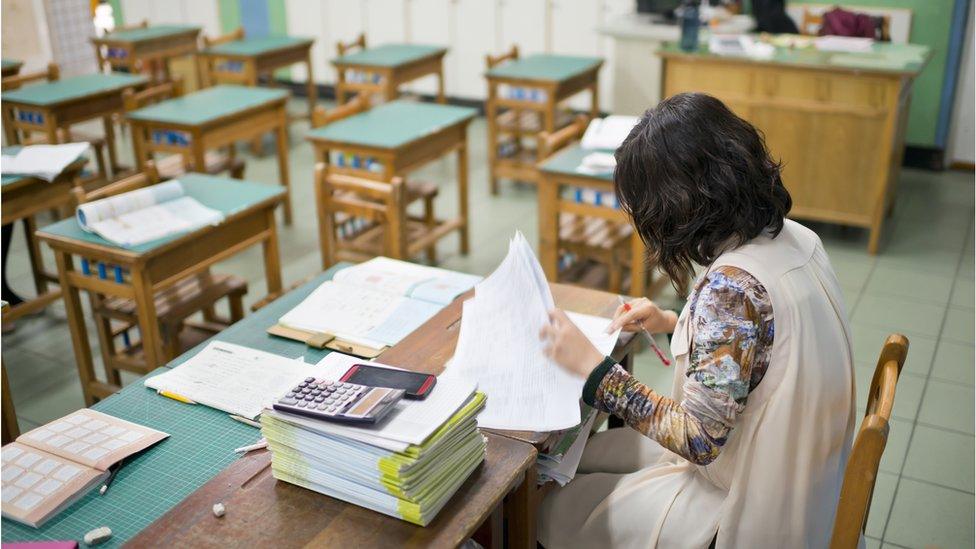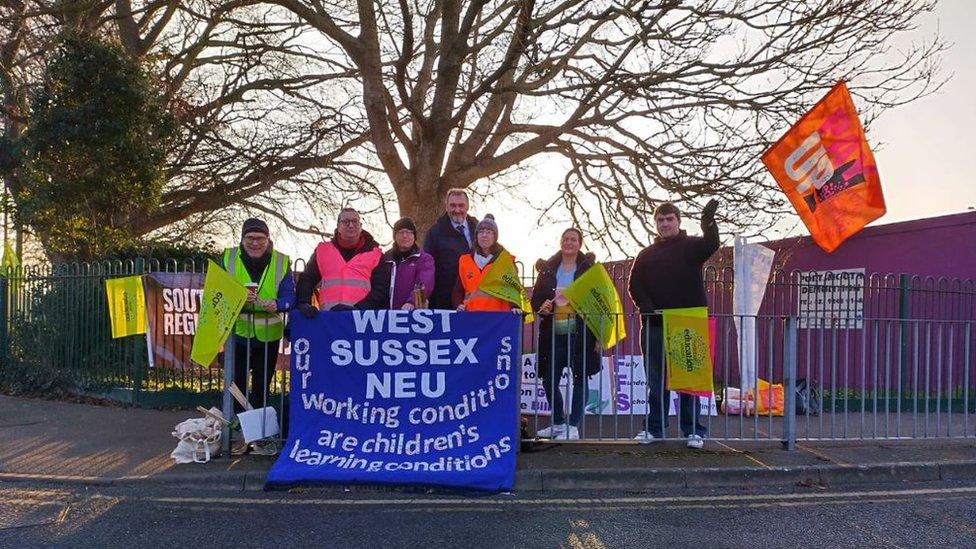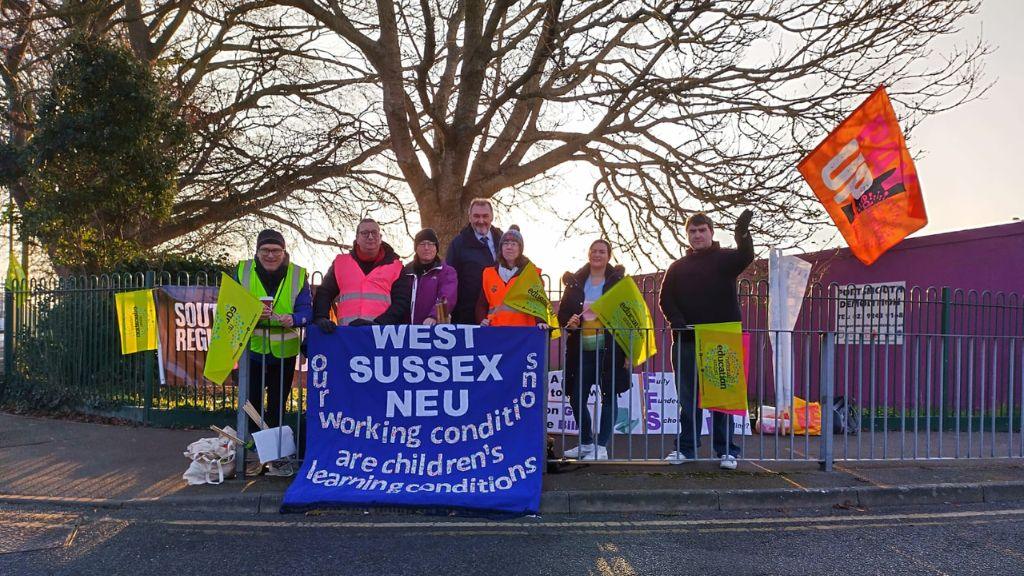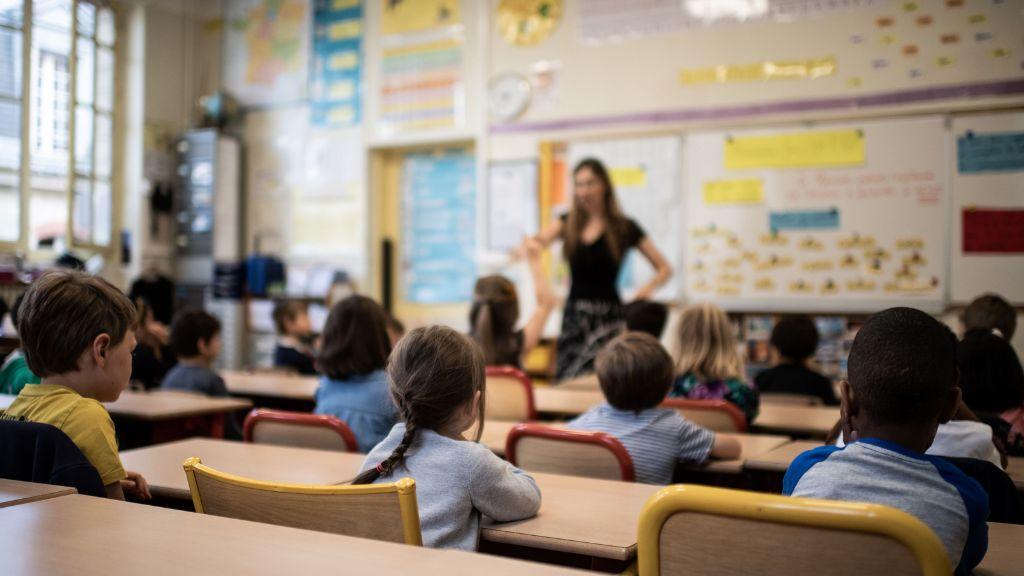South East teacher shortage is worst ever, say staff and unions
- Published

Teachers often work long days
Teachers say schools are struggling in the South East as data shows the region is the worst hit by teacher shortages.
There were 276 vacancies in Kent, Sussex and Surrey last year, twice the previous year, government figures show.
The BBC understands one school was teaching multiple classes together in the school hall, a practice described as "educationally unethical".
The Department for Education said schools now have "more teachers than ever before".
DfE figures, external on staff recruitment show Kent is the local authority with the highest number of vacancies in the country. It had 135 unfilled positions last year - up from 44 in the previous year.

The number of teacher vacancies in England doubled from 1,100 in November 2020 to 2,300 in November 2022, when the latest DfE figures were released.
Mike Walters from the association of Kent headteachers said: "Teacher recruitment is as bad as it's ever been."
He said the recruitment challenges schools usually face in subjects such as maths, science and modern languages have extended into "previously plentiful areas such as English, business studies, food technology and DT".
'Acute teacher shortage'
David Blow, an executive head teacher in Surrey, agreed it has been really challenging to recruit this year.
Although the three schools he manages are fully staffed, he said it has "taken an enormous amount of effort" and cost thousands in agency fees.
"There are many colleagues out there who haven't got those people for September," he said.
Schools are having to make drastic decisions to adapt to staff shortages.
A letter seen by the BBC from a head teacher in Sussex said senior leadership staff were covering five or six classes from different year groups in the school hall.
The head teacher said this was "educationally unethical" and "we must find a solution to the acute teacher shortage".

Teachers in Sussex, Kent and Surrey joined national strikes over pay and conditions in March and May
Statistics from the DfE, external show that a third of new teachers leave the profession within five years.
One teacher in Kent told the BBC she was leaving this summer after six years and her school was facing huge staff turnover, especially amongst young teachers.
"There's a lot of blame on senior leadership, but I think so much of it is schools being starved of resources," she said.
She entered the profession wanting to "make a difference and have a tangible impact", but working through the pandemic shifted her perspective.
"Martyring yourself for the profession is not sustainable long term," she said.
Teaching staff are due to strike for two days in July over pay and conditions, following the most recent industrial action last month.
As well as a more flexible work culture outside of teaching, pay is also cited as a reason for leaving the profession, especially in south-east England due to the high cost of living.
In a survey on teacher retention conducted by the Association of School and College Leaders (ASCL),, external young teachers said they could not afford housing and one was resigning as she said could not afford the petrol to commute.
Siobhan Lowe, a former head teacher and educational consultant in Surrey, said: "If you think what a teacher who starts on the salary of £30,000 earns after tax and insurance and everything else, rent is over 50% of their monthly income."
The DfE said recent data shows there are a record 468,300 full-time teachers in England's schools - an increase of 6% since 2010.
A spokesperson added: "The department offers a range of recruitment and retention initiatives to attract the best candidates into teaching, including bursaries worth £27,000 tax-free and scholarships worth £29,000 tax-free."

Follow BBC South East on Facebook, external, on Twitter, external, and on Instagram, external. Send your story ideas to southeasttoday@bbc.co.uk.
Related topics
- Published2 March 2023

- Published12 April 2023

- Published15 June 2023

- Published15 April
